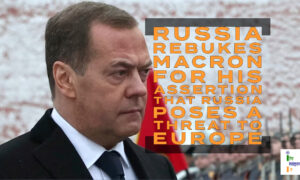
European Commission proposes capping some Ukrainian produce amid continued farmer protests across the bloc
The European Commission has proposed to cap duty-free imports of some Ukrainian produce following prolonged protests from European farmers.
The proposal aims to restrict imports of oats, eggs, poultry, and sugar to prevent adverse effects on European Union (E.U.) farmers due to cheap Ukrainian imports. However, all other Ukrainian imports into the E.U. will remain duty-free until at least June 2025, including wheat and barley, despite objections from some farmers.
The European Commission’s proposal is now subject to approval by E.U. Member States and the European Parliament.
Tariffs will be applied on these products if imports exceed the average levels of 2022 and 2023. The European Commission had suggested using 2021 as the benchmark year as Ukrainian exports were not affected by Russian invasion at that time. A commitment has also been secured for monitoring by the European Commission of imports of Ukrainian wheat and other cereals and for action to be taken if EU markets are disrupted.
The initiative for duty-free imports was initially introduced to support Ukrainian agriculture in the aftermath of Russia’s invasion. However, it sparked widespread protests among farmers in Eastern Europe who felt they were being undercut by Ukrainian products not meeting E.U. standards. In response to these concerns, the E.U. announced in January’24 its intention to establish a “safeguard mechanism” to reapply emergency tariffs on Ukrainian imports if they threatened to disrupt the market.
Presenting its latest set of measures, the E.U. said the decision to cap duty-free Ukrainian imports would “alleviate the pressure on E.U. farmers should they be overwhelmed by a sudden surge in Ukrainian imports.” However, many farmer unions remain unconvinced.
Taking it to x, the E.U. Farmers Association – Copa Cogeca tweeted,
— COPA-COGECA (@COPACOGECA) March 20, 2024
Despite the inclusion of oats, maize, groats and honey and shortening of the activation period, the main amendments from the @Europarl_EN and asks of
producers where not taken on board.
Without the change in the reference year and no direct inclusion of wheat, this… https://t.co/6VfmlyHHB3 pic.twitter.com/jNeXYEhnb0
The Minister of Agriculture and Food Sovereignty of France – Marc Fesneau, said that the proposal should have included more cereals, including wheat, and that the final proposal is not what they would have wanted. Besides, the Head of the French Young Farmers Union said that even though the deal is “in the right direction… it doesn’t go far enough”.
Separately, thousands of Polish farmers continued to block roads and border crossings with their tractors. As per the reports, more than 70,000 people participated in the protest, which took place on Wednesday, 20th March’24.
Ukraine’s E.U. neighbours including Bulgaria, Hungary, Poland, Romania and Slovakia have said the imports have upset their markets, leading to protests by farmers and truckers. Due to logistical problems, many Ukrainian cereal exports originally destined for non-E.U. countries have accumulated in Poland, raising the pressure on local producers.
Earlier in January’24, when the farmers took to the streets, the E.U. has moved to assuage some of the farmers’ concerns, particularly with regards to the bloc’s sustainability targets. The E.U. said that it would reduce the specific demands on the agricultural sector to cut net greenhouse emissions and that it would scrap a proposal halving pesticides. It also granted a partial exemption from the rule on leaving land fallow.







